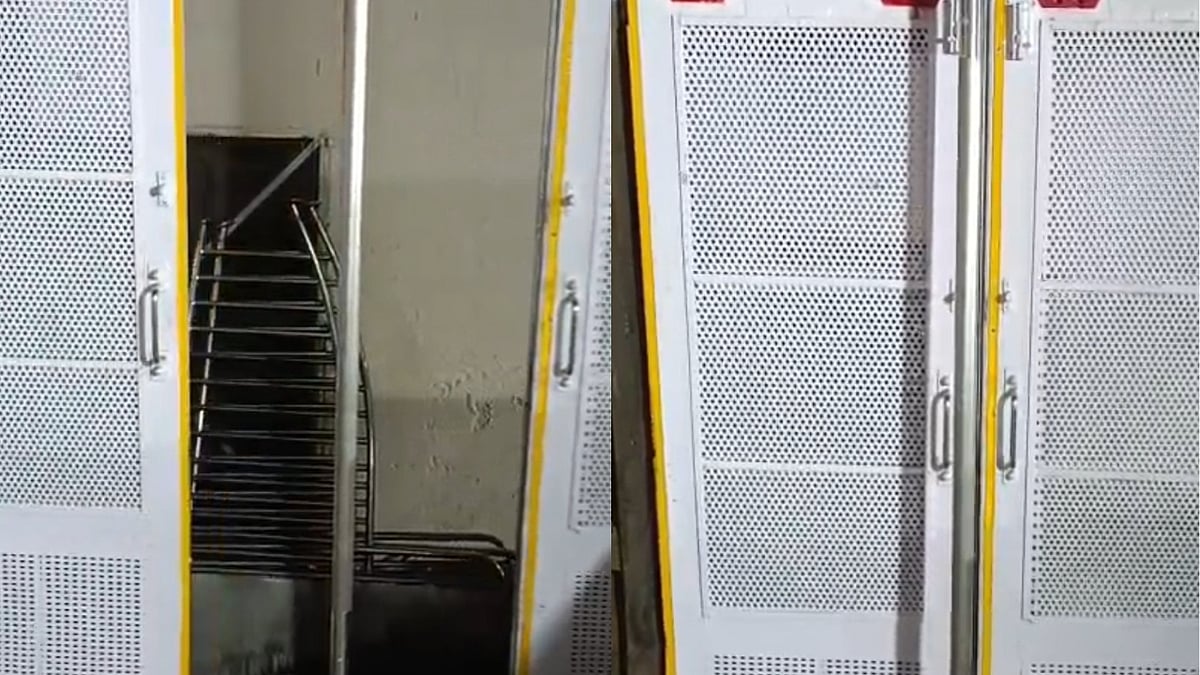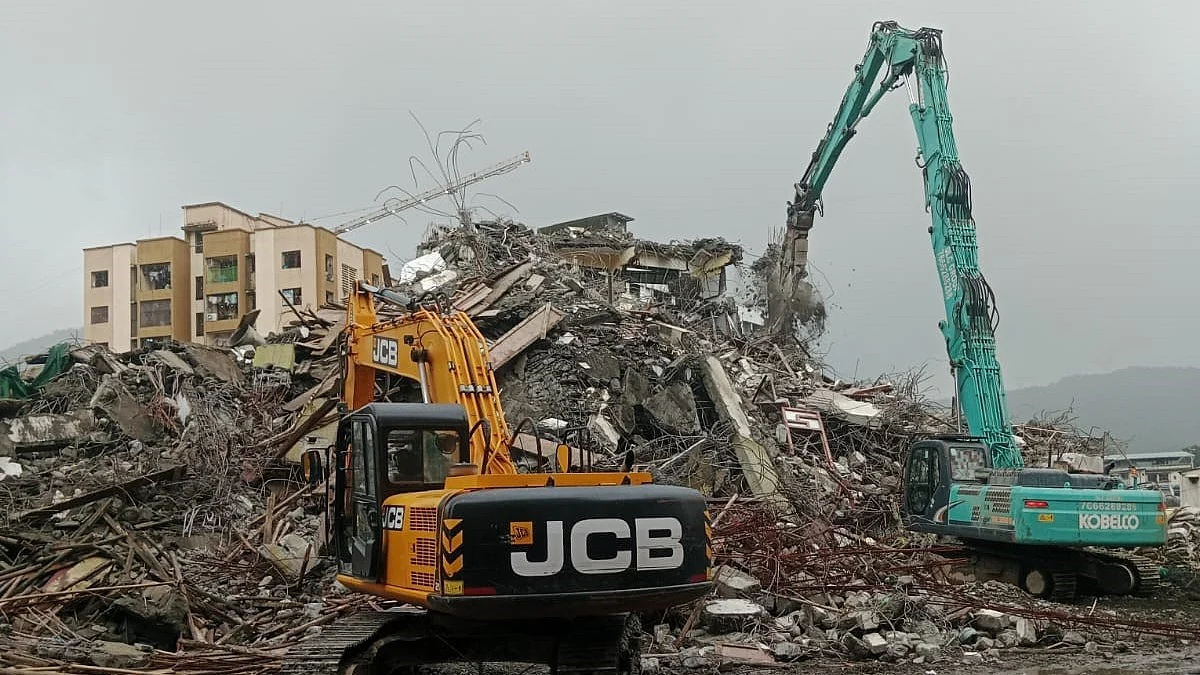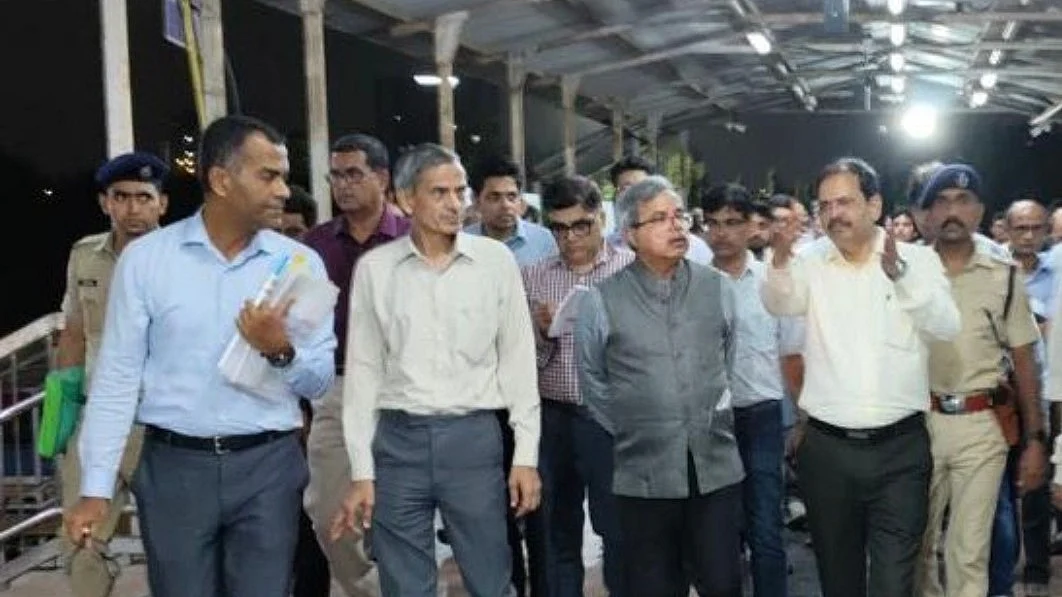Central Railway’s prototype of an automatic door-closing system for non-air-conditioned (non-AC) local trains developed at the Kurla car shed has drawn a spectrum of reactions from transport experts and retired railway officials.
Sudhanshu Mani Criticises Design and Practicality
Sudhanshu Mani, retired General Manager of the Integral Coach Factory (ICF), Chennai credited with leading the Train 18 (Vande Bharat) project dismissed the prototype as “crude and rudimentary work.” He raised concerns about both design standards and real-world applicability in Mumbai’s high-density, fast-boarding suburban environment.
"The double-leaf sliding door is a must in AC locals and is already in use in AC EMUs ( local trains) . The door displayed in the video is, therefore, nothing innovative; on the other hand, it appears to be very crude and rudimentary work without good aesthetics. Moreover, although I do not know the details, it would certainly make a crowded coach suffocating. If safety has to be given top priority, AC EMUs are the only option. Without wide gangways connecting coaches which also help accommodate more passengers how would emergency evacuation be done in such coaches? This, in my opinion, does not seem to be an innovative move but something that would fail," stated Sudhanshu Mani.
Subodh Jain Slams Railway Mindset as Out of Touch
Adding a sharper critique, Subodh Jain, former Member (Engineering) of the Railway Board and a former top Central Railway official, likened the decision-making mindset to that of the French aristocracy.
“If they don’t have bread, let them eat cake this is the mindset of the decision makers of Mumbai suburban,” he said. “I think railway management is fully aware that door-closing in non-air-conditioned suburban trains is not a practical solution, but they are going through the motions to demonstrate that action is being taken to prevent a repeat of Mumbra-type accidents," he further added.
Lack of Progress on Capacity Expansion Highlighted
"Suburban Railway is the lifeline of Mumbai, and if the objective is to destroy the system so that the elitist Metro can get ridership, then Mumbai will undergo a cultural transformation that favors the privileged class. Safety is important, and the present level of casualties in the suburban system is not acceptable, but overcrowding is not the only cause of death on the tracks. Trespassing is another scourge that needs to be addressed. The only solution to overcrowding is to increase capacity. Operation of 15-car rakes on the Central and Western lines was successfully experimented with 15 years ago, but on one pretext or another, the same is not being adopted universally. There is hardly any visible progress in recent times on the completion of the 5th and 6th lines, which would release substantial capacity for more trains on the suburban system," Jain added.
Activists Reject the Plan as ‘Rubbish’ and ‘Jugaad’
"This is a rubbish idea Western Railway has already experimented with it, and it completely failed," said Shailesh Goyal, a passenger activist.
Similarly, A.V. Shenoy, Co-founder of the Mumbai Mobility Forum, said, "Instead of such a jugaad solution like retrofitting automatic door closers, Railways should consider a progressive changeover to fully air-conditioned trains, with a slight increase in fares. AC should no longer be treated as a luxury. Today, Metros and BEST buses have gone AC, and all cars come with AC as standard. Mumbai is a metro city its passengers deserve a comfortable commute."
"Technology like automatic door closers can enhance safety, but in Mumbai's packed local trains, they might worsen ventilation and cause delays. Until we address the root causes, no tech fix like this will be enough. We need systemic change, not just smarter doors," said Advocate Prathamesh, a frequent commuter of local trains.
"Both safety and punctuality are critical, and I believe we don’t need to compromise one for the other. There are viable solutions to balance both," said Samir Zaveri, a passenger activist.
Experts Say Technology Alone Won’t Solve Deeper Issues
Similarly, Mohammed Afzal, a transport expert, said, "Safety must be the first priority Mumbai’s local trains are among the most crowded in the world. Deaths due to falls from moving trains are tragically common. In that context, introducing automatic door-closing systems is a long-overdue step to prevent fatalities. But implementation cannot be blind."
"Passenger safety is of utmost importance... and punctuality is equally important. The railway administration must strive to maintain a proper balance between the two... because for Mumbai’s commuters, both their lives and livelihoods are closely tied to this lifeline," said Lata Argade, President, Federation of Suburban Passengers Association.
Journalist Welcomes Idea with Caveats
Veteran journalist and transport analyst Vidyadhar Date welcomed the initiative with cautious optimism.“It's a good move to provide automatic door closers to non-AC trains, provided there is good ventilation,” he said. Date also emphasized the need for more trains in the network. “The government has enough money and infrastructure to make this happen.”
The prototype developed by Central Railway in response to tragic incidents like the Mumbra accident is aimed at enhancing commuter safety by preventing passengers from falling off running trains. However, its design and practicality have sparked a debate.
Railways: Still in Evaluation Phase
The prototype, which is still undergoing technical evaluation, attempts to bridge the gap between the safety of AC locals where automatic doors are standard and the more widely used non-AC local trains that account for the majority of Mumbai’s suburban fleet," said a senior railway official who didn't want to be quoted.
Western Railway’s Past Experiments Had Failed
However, this is not the first time Indian Railways has attempted to introduce automatic doors in non-AC local trains. Western Railway had previously conducted two trials of similar systems, both of which failed to meet safety and operational standards, leading to the project's eventual scrapping.







